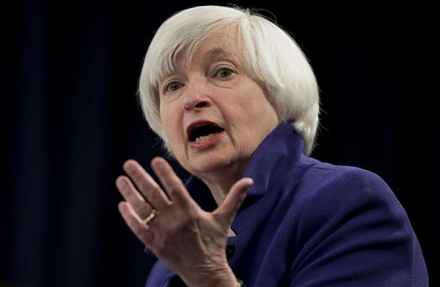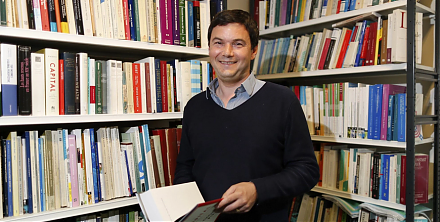

Home > Library > Bidenomics 2.0: trade, taxation, and technology
Author Amy Hamilton
This AYA analytic ebook delves into the macroeconomic and technological aspects of Bidenomics from mid-2020 to present. This ebook comprises 4 main parts. The first part explains the pre-Biden Trump economic policy reforms in trade, taxation, and technology in accordance with anti-China investor sentiment and neo-liberal public choice. The second, third, and fourth parts discuss the central foundations of Biden economic policy reforms in fiscal and monetary policy coordination, climate change, and the Inflation Reduction Act. Through these latter analytic reports, Bidenomics focuses on the recent technological advances and their broader policy implications for environmental, social, and governance (ESG) stock market investment strategies etc. This macro trend has profound public policy implications for U.S. tech titans Meta, Apple, Microsoft, Google, Amazon, Nvidia, and Tesla etc (MAMGANT). Length: 206 pages (90,405 words)
Description:
This AYA analytic ebook delves into the macroeconomic and technological aspects of Bidenomics from mid-2020 to present. This ebook comprises 4 main parts. The first part explains the pre-Biden Trump economic policy reforms in trade, taxation, and technology in accordance with anti-China investor sentiment and neo-liberal public choice. The second, third, and fourth parts discuss the central foundations of Biden economic policy reforms in fiscal and monetary policy coordination, climate change, and the Inflation Reduction Act. Through these latter analytic reports, Bidenomics focuses on the recent technological advances and their broader policy implications for environmental, social, and governance (ESG) stock market investment strategies etc. This macro trend has profound public policy implications for U.S. tech titans Meta, Apple, Microsoft, Google, Amazon, Nvidia, and Tesla etc (MAMGANT).
Length: 206 pages (90,405 words)
Part 1: pre-Biden Trump economic policy reforms in trade, taxation and technology.
The global economy faces a paradigm shift toward pervasive peculiar phenomena due to Sino-U.S. fair trade and Brexit deals.
Technological advances, geopolitical risks, and pandemic outbreaks cannot shake investor confidence in the American dollar as the global reserve currency.
U.S. tech titans Facebook, Apple, Microsoft, Google, and Amazon enjoy platform advantages, competitive moats, positive network effects, and scale economies.
Artificial intelligence continues to push boundaries for several tech titans to sustain their disruptive innovations, competitive moats, and first-mover advantages.
Part 2: Biden economic reforms in fiscal and monetary policy coordination, climate change, and the Inflation Reduction Act.
The corona virus crisis helps reshape global trade, taxation, and technology.
The Biden administration launches economic policy reforms in fiscal and monetary stimulus, global trade, finance, and technology.
The global asset management industry is central to modern capitalism.
Banks must now compete with central bank digital currencies (CBDC) and fintech payment platforms in processing inter-bank and cross-border payments worldwide.
Part 3: Biden tech advances and their broader policy implications for environmental, social, and governance (ESG) stock market investment strategies.
Artificial intelligence, 5G, and virtual reality can help transform global trade, finance, and technology.
There are several structural antitrust issues and concerns in U.S. digital markets.
What are the major demand-supply factors and concerns in light of semiconductor microchip shortages and financial services?
Electrification can help substantially reduce global carbon emissions worldwide in accordance with the Paris climate agreement.
Part 4: Biden tech advances and their broader policy implications for environmental, social, and governance (ESG) stock market investment strategies.
The Biden Inflation Reduction Act is central to modern world capitalism.
What are the top global macro tech risks (as of mid-2023)?
Government intervention remains a major influence over global trade, finance, and technology.
The bank-credit-card model and fintech platforms have adapted well to the recent digitization of cashless finance.
In recent decades, trade liberalization has promoted better economic growth and efficiency worldwide.
AYA fintech network platform provides proprietary alpha stock signals and personal finance tools for U.S. stock market investors and traders. Our quantitative analysis accords with the standard approach to discounting-cash-flows (DCF) and free-cash-flows (FCF) corporate valuation.
This analytic report cannot constitute any form of financial advice, analyst opinion, recommendation, or endorsement. We refrain from engaging in financial advisory services, and we seek to offer our analytic insights into the latest economic trends, stock market topics, investment memes, and other financial issues. Our proprietary alpha investment algorithmic system helps enrich our AYA fintech network platform as a new social community for stock market investors: https://ayafintech.network.
We share and circulate these informative posts and essays with hyperlinks through our blogs, podcasts, emails, social media channels, and patent specifications. Our goal is to help promote better financial literacy, inclusion, and freedom of the global general public. While we make a conscious effort to optimize our global reach, this optimization retains our current focus on the American stock market.
This analytic report shares new economic insights, investment memes, and stock portfolio strategies through both blog posts and patent specifications on our AYA fintech network platform. AYA fintech network platform is every investor's social toolkit for profitable investment management. We can help empower stock market investors through technology, education, and social integration.
This analytic essay cannot constitute any form of financial advice, analyst opinion, recommendation, or endorsement. We refrain from engaging in financial advisory services, and we seek to offer our analytic insights into the latest economic trends, stock market topics, investment memes, personal finance tools, and other self-help inspirations. Our proprietary alpha investment algorithmic system helps enrich our AYA fintech network platform as a new social community for stock market investors: https://ayafintech.network.
We share and circulate these informative posts and essays with hyperlinks through our blogs, podcasts, emails, social media channels, and patent specifications. Our goal is to help promote better financial literacy, inclusion, and freedom of the global general public. While we make a conscious effort to optimize our global reach, this optimization retains our current focus on the American stock market.
This free ebook, AYA Analytica, shares new economic insights, investment memes, and stock portfolio strategies through both blog posts and patent specifications on our AYA fintech network platform. AYA fintech network platform is every investor's social toolkit for profitable investment management. We can help empower stock market investors through technology, education, and social integration.
We hope you enjoy the substantive content of this essay! AYA!
Andy Yeh
Chief Financial Architect (CFA) and Financial Risk Manager (FRM)
Brass Ring International Density Enterprise (BRIDE) ©
Do you find it difficult to beat the long-term average 11% stock market return?
It took us 20+ years to design a new profitable algorithmic asset investment model and its attendant proprietary software technology with fintech patent protection in 2+ years. AYA fintech network platform serves as everyone's first aid for his or her personal stock investment portfolio. Our proprietary software technology allows each investor to leverage fintech intelligence and information without exorbitant time commitment. Our dynamic conditional alpha analysis boosts the typical win rate from 70% to 90%+.
Our new alpha model empowers members to be a wiser stock market investor with profitable alpha signals! The proprietary quantitative analysis applies the collective wisdom of Warren Buffett, George Soros, Carl Icahn, Mark Cuban, Tony Robbins, and Nobel Laureates in finance such as Robert Engle, Eugene Fama, Lars Hansen, Robert Lucas, Robert Merton, Edward Prescott, Thomas Sargent, William Sharpe, Robert Shiller, and Christopher Sims.
Follow our Brass Ring Facebook to learn more about the latest financial news and fantastic stock investment ideas: http://www.facebook.com/brassring2013.
Free signup for stock signals: https://ayafintech.network
Mission on profitable signals: https://ayafintech.network/mission.php
Model technical descriptions: https://ayafintech.network/model.php
Blog on stock alpha signals: https://ayafintech.network/blog.php
Freemium base pricing plans: https://ayafintech.network/freemium.php
Signup for periodic updates: https://ayafintech.network/signup.php
Login for freemium benefits: https://ayafintech.network/login.php
2017-06-09 06:37:00 Friday ET

To complement President Trump's pro-business economic policies such as low taxation, new infrastructure, greater job creation, and technological in
2019-04-01 08:28:00 Monday ET

OraSure and its subsidiary DNA Genotek specialize in the lean production of home DNA spit tubes. OraSure extracts core genetic information from microbiome s
2019-10-19 16:35:00 Saturday ET

European economic integration seems to have gone backwards primarily due to the recent Brexit movement. Brexit, key European sovereign debt, and French and
2018-11-05 10:40:00 Monday ET

Former Fed Chair Janet Yellen worries about U.S. government debt accumulation, expects new interest rate increases, and warns of the next economic recession
2023-05-28 10:24:00 Sunday ET

Thomas Piketty connects the dots between economic growth and inequality worldwide with long-term global empirical evidence. Thomas Piketty (2017) &nbs
2017-06-27 05:40:00 Tuesday ET

These famous quotes of self-made billionaires are inspirational words of wisdom on financial management, innovation, and entrepreneurship. For financial